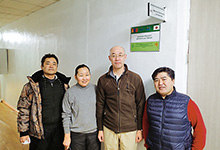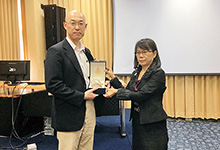International Cooperation
International Contribution / Development of Human Resources
The National Research Center for Protozoan Diseases, in collaboration with the Japan International Cooperation Agency (JICA), has provided training programs on zoonotic protozoan diseases to backbone and senior administrative technical researchers from developing countries, especially Asian and African nations, since 1995. Over 176 graduates working as advanced technical researchers perform zoonoses measures in their respective countries and act as important counterparts for the international joint research project. We also provide graduates the opportunity to join our research center for 6 months to 1 year to re-train their professional skills and develop collaborative research projects with us. We accept four or more re-trainees every fiscal year.
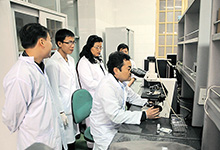

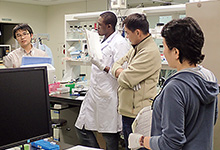

International Joint Research Center
Many protozoan diseases persistently infect livestock, causing anemia and miscarriages and worsening their chronic health condition. However, accurate means of diagnosis, prophylactic vaccines and safe specific medicines are not available for protozoan diseases. The detrimental effects of protozoan diseases on livestock must therefore be resolved on a global scale as quickly as possible. The National Research Center for Protozoan Diseases, as the international joint research center for protozoan diseases of animals in the world, has clarified the distribution and damage caused by these diseases by conducting a large-scale epidemiological survey using diagnostic technology developed in-house. Moreover, we train young specialists throughout the world through these kinds of activities at the international joint research center. The center also continues to develop and make contributions to research on protozoan diseases, as well as maintaining an early recognition system and thereby contributing to the prevention of these diseases in livestock and thus to the development of the international livestock industry.
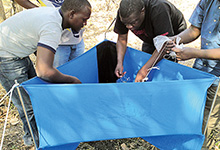
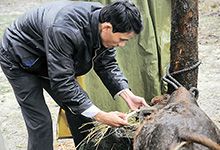
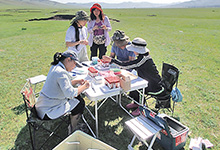
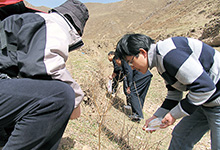
Cooperation countries: The United States of America, Mongolia, China, Taiwan, South Korea, Philippines, Thailand, Vietnam, Indonesia, Sri Lanka, Egypt, Kenya, Uganda, Benin, Burkina Faso, South Africa and Turkey
Base of Activities
As an international joint research center for the control of protozoan diseases, the National Research Center for Protozoan Diseases develops technology for the diagnosis, prevention and treatment of livestock protozoan diseases in domestic and foreign countries. We utilize an experimental system that simulates the life cycle of each protozoon in nature (experimental system of authentic infection). In addition we use OIE Collaborating Centre-related research to promote developmental research into technology relating to protozoan disease prevention that will become the international standard. Using the framework of the JST/JICA SATREPS Program “Epidemiological studies on animal protozoan diseases in Mongolia and development of effective diagnostics measures”, which was adopted in May 2013, this center established a research hub for foreign fields in the Institute of Veterinary Medicine in Mongolia. This is used to implement the experimental system of authentic infection for livestock protozoan diseases, and to perform research on site in areas where protozoan diseases prevail.
